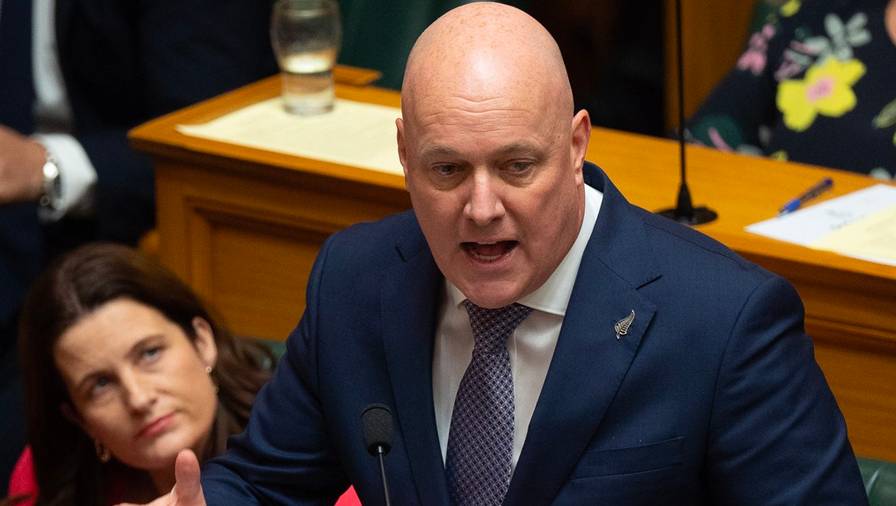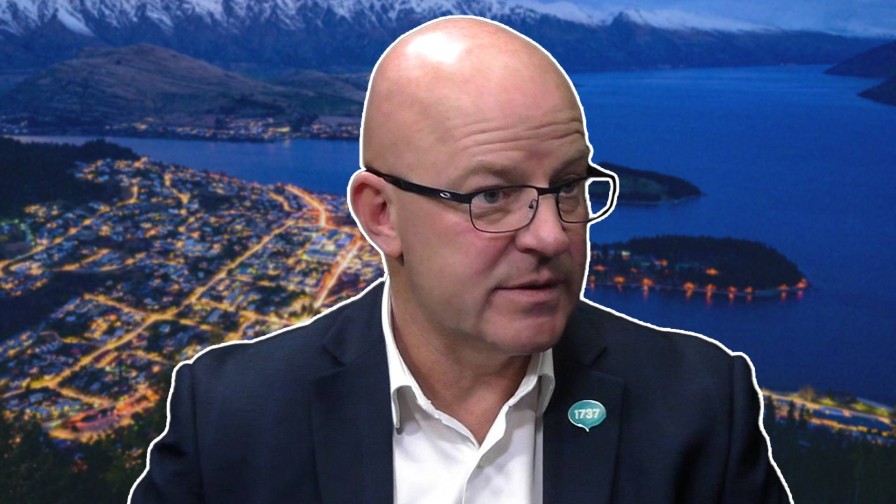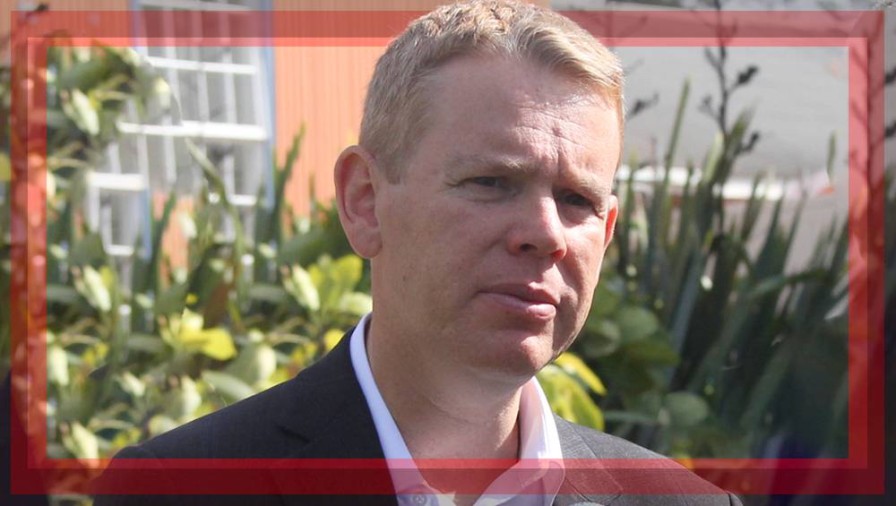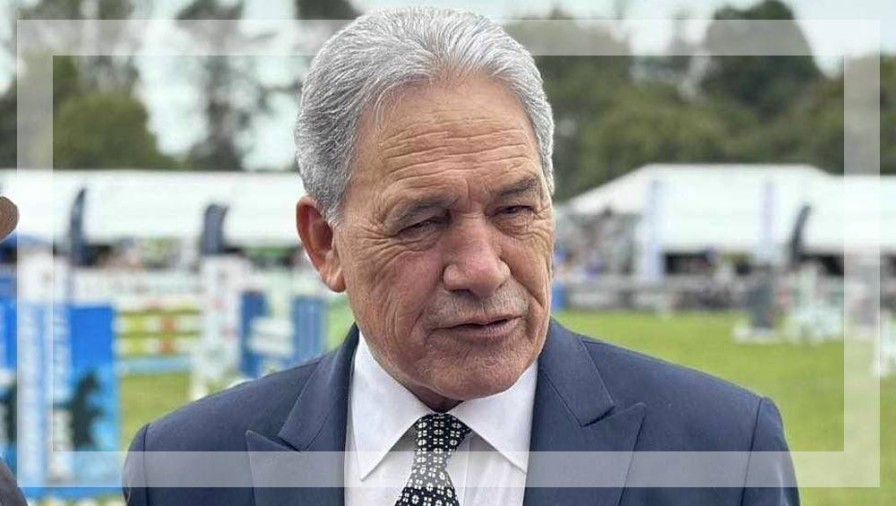Ministerial reshuffle, going for growth, the Trump factor
Finance Minister Nicola Willis is now also Minister for Economic Growth.
Beehive Banter.
Finance Minister Nicola Willis is now also Minister for Economic Growth.
Beehive Banter.
Prime Minister Christopher Luxon started the year with a relatively bold Cabinet reshuffle, although it only involved National Party ministers.
Luxon removed Dr Shane Reti as health minister, replacing him with Simeon Brown. As a result, Brown’s transport, energy, and local government portfolios went to Chris Bishop and Simon Watts.
To underline his promise to make economic growth the priority this year, the Prime Minister also sacked Melissa Lee as a minister, renaming her ‘economic development’ portfolio ‘economic growth’ and handing it to Finance Minister Nicola Willis.
“Her focus will be on leading the Government’s growth agenda to unleash the potential of our businesses to grow, develop talent, and attract investment. That will mean coordinating and strengthening efforts that are already under way to deliver economic growth – and taking responsibility for new initiatives designed to promote growth and productivity in the New Zealand economy.”
It was a little bit of a rebranding exercise, given finance ministers are meant to be responsible for economic growth and, in previous regimes, have often chaired meetings of ministers with economic-related responsibilities to drive growth faster.
Labour leader Chris Hipkins was not impressed with the appointment. “Giving Nicola Willis a new portfolio of ‘economic growth’ begs the question of why she hasn’t been focused on that all along? What Minister of Finance doesn’t focus on economic growth?” Hipkins said.

Prime Minister Christopher Luxon.
In Willis’s case, the first initiative she came up with was to get more tourists coming into the country. Matt Doocey, though, won’t be the man responsible for that, given he was dumped as minister in the reshuffle and his job given to Social Development Minister Louise Upston. Apparently, it was done to allow him to focus solely on his mental health portfolio and to provide more support to now Health Minister Brown. But Upston already has big portfolio responsibilities, particularly with the Government’s ambition to cut the number of people on benefits.
Nor is there much new in Willis’s bid to boost inbound tourism numbers, although some destinations – Queenstown, for one – are questioning whether they can cope with more tourists.
When Doocey was minister, he had wanted to boost tourist numbers but said it would be up to local councils to determine how many tourists they could cope with. His plan was to try and get more tourists to visit during the off season as a way of both boosting overall tourist numbers without necessarily putting infrastructure under too much strain during the peak tourist months.
It is not clear yet whether comments from Willis signal a change of approach or are simply a way of marketing the Government’s commitment to increasing growth.
The economy will grow more strongly this year anyway as the impact of lower interest rates and low inflation are felt. It can hardly be worse than last year, when the country was in deep recession.
No doubt the Government will take credit for a cyclical rebound and an immediate boost in tourist numbers would add to economic activity even if some areas struggle to cope with the demand.

Matt Doocey was dumped as Tourism and Hospitality Minister.
The Labour Party was predictably critical of the reshuffle, with Hipkins saying it was like rearranging the deck chairs on the Titanic.
Labour’s health spokesperson Ayesha Verrall criticised the decision to replace Reti with Brown. “Dr Reti is a decent man who never stood a chance because of the budget he was given. Recruitment freezes, cuts to frontlines services, and other budget cuts have left New Zealanders with little trust that they will get the care they need,” Verrall said.
Meanwhile, the latest consumer price index for the year to the end of December recorded annual inflation unchanged at 2.2%, reinforcing the likelihood of the Reserve Bank cutting the official cash rate by another 50 basis points next month.
It was good news for Luxon, as it came the day before he delivered his state-of-the-nation speech in Auckland, where he focused almost exclusively on what the Government intended to do to lift the country’s economic growth rate.
The Prime Minister announced two significant policies. First, the Government is shrinking the seven existing Crown Research Institutes into three public research organisations focusing on bioeconomy, earth sciences, and health and forensic sciences, as well as setting up a fourth organisation focused on advanced technology. It is also scrapping Callaghan Innovation, which had been set up by the previous National-led Government in 2013.

Labour leader Chris Hipkins said the Cabinet reshuffle was like rearranging the deck chairs on the Titanic.
In the second policy announcement, the Government is setting up Invest New Zealand as a standalone entity, taking its responsibilities off New Zealand Trade and Enterprise, to help increase the level of foreign investment in this country.
Both Luxon and Trade and Investment Minister Todd McClay say there are tens of billions of dollars of foreign investment just waiting to come here. But investors need to be given help to invest and that will be the role of the new agency.
Coalition partner New Zealand First is also keen on foreign investment, but it remains opposed to the idea of foreign ownership. Its leader and Deputy Prime Minister Winston Peters made that point in an interview with NBR earlier this month.
“Foreign investment and foreign ownership are two different things,” Peters said.
This suggests not all parties are on the same page when it comes to attracting foreign investment (and ownership), with Luxon referring to a difference of opinion with New Zealand First over the matter.
But, for the moment, the Government is opening the doors wider to foreign investors.

While supportive of foreign investment, NZ First leader Winston Peters remains opposed to foreign ownership.
There was another political event this week that had ripple effects across the world and from which New Zealand is not immune. Donald Trump was sworn in as United States President and immediately set about implementing his agenda through a series of executive orders, including pardoning and freeing all of those involved in the violent attack on Capitol Hill in Washington DC in January 2021.
It is early days but, as the New Zealand Government pushes its growth agenda, it will keep a careful eye on any impact on trade and the world economy that Trump’s policy of raising tariffs will inevitably have.
Next week, Parliament resumes sitting earlier than normal after the Christmas and New Year break. Usually, MPs have not had go back to Wellington until after Waitangi Day. But this year they get a week of politics-as-usual before Parliament has a one-week recess to mark the Waitangi celebrations.
Brent Edwards is NBR’s political editor. Grant Walker returns to Beehive Banter next week.
Sign up to get the latest stories and insights delivered to your inbox – free, every day.